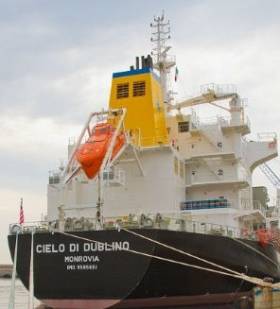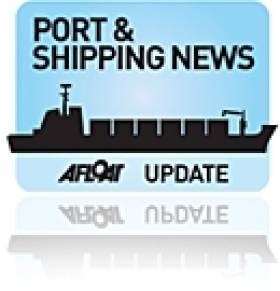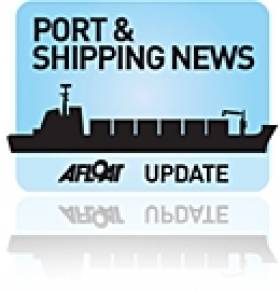Displaying items by tag: d'Amico Group
d’Amico Group is 'Green Shipowner of the Year 2016'
#GreenAward - The d'Amico Group, the Italian maritime transport company has won the "Green Shipowner of the Year" 2016 for commitment in implementing on its fleet a system able to reduce the environmental impact and constantly monitor the performance of energy consumption. The company's dry-cargo subsidiary, d'Amico Dry domiciled in Dublin, operates a range of modern tonnage.
advanced sensors on board, which allow to track consumption and performance in real time, led to a deeper responsibility assignment of the crew on environmental issues”, stated Domenico Savio Taiano, HSQE Director of d'Amico Group. Besides these engineering solutions, which already allow considerable reduction of fuel consumption and emissions (CO2, SOx and NOX), d’Amico Group established a Performance Monitoring Department, standing out among the first shipowner companies, specialized in transporting dry and liquid bulk cargos, able to create a department focused on monitoring the whole fleet performance exclusively.
The jury that selected the projects comprised Craig Eason (Deputy Editor, Lloyd's List), George Papagiannopoulos (Common Progress), Lars Robert Pedersen (COO, BIMCO), Mark Cameron (COO, Ardmore Shipping), Hanna Lee Behrens (Norwegian Shipowners' Association). d’Amico Group has always settled among its “core values” a strong commitment to the environment. The environmental policy and the plans on sustainable development are, and will still be, important pillars of the strategy of the Group.
#dAmicoGroup - Minister for Transport Paschal Donohue met the owners of the D'Amico Group, Cesare d'Amico and Paolo d'Amico, along with their senior management team in Dublin earlier this week according to the Irish Maritime Development Office (IMDO).
The Minister welcomed d'Amico's continued commitment to investment in Ireland and interest in the development of the Irish maritime sector.
Minister Donohue stressed the Government's commitment to the growth of the Maritime Industry in Ireland, as encapsulated in the Harnessing Our Ocean's Wealth strategy.
The strategy sets out an ambitious programme of growth ultimately aiming to double the sector's contribution to Ireland's GDP and the Irish Maritime Development Office (IMDO) is working to achieve the commercial targets laid out in the strategy.
d'Amico was one of the first international shipping companies to open up offices in Ireland after Ireland introduced a competitive Tonnage Tax regime in 2003. As previously reported on Afloat.ie, an independent report of the tax regime was launched in October.
The d'Amico Group are now part of the fabric of the Irish Maritime industry and continue to grow their presence in the market.
The IMDO were intrinsically involved in encouraging the d'Amico Group to first open up premises in Ireland in 2004 and continue to support the growth of their investment in Ireland.
D'Amico group currently employs around 40 people in their Dublin office and more than 1,500 globally. The jobs at the Dublin office are highly skilled and have been recruited directly in Ireland.
In addition d'Amico, provide training berths on their vessels to Irish cadets training at the National Maritime College in Ireland.
Speaking at the ceremony Mr. Murphy commented: "d'Amico Group are one of a leading number of firms that are driving investment in this sector in Ireland which is contributing to new employment and growth opportunities".
Entry of the new dry-bulkers marks another important chapter in the d'Amico Group's development since it established its Irish office in 2002, as the vessels are managed from its Dublin office under the Irish Tonnage Tax (ITT) regime.
Four more newbuilds are under construction in Korea, scheduled for delivery in 2012, and two under construction in Japan which are due in 2013. The latter ships represent a further investment in excess of US $310 million to the Italian company that began and grew as a family business in 1936.
To read more about this logon to the IMDO website and also www.damicoship.com


























































